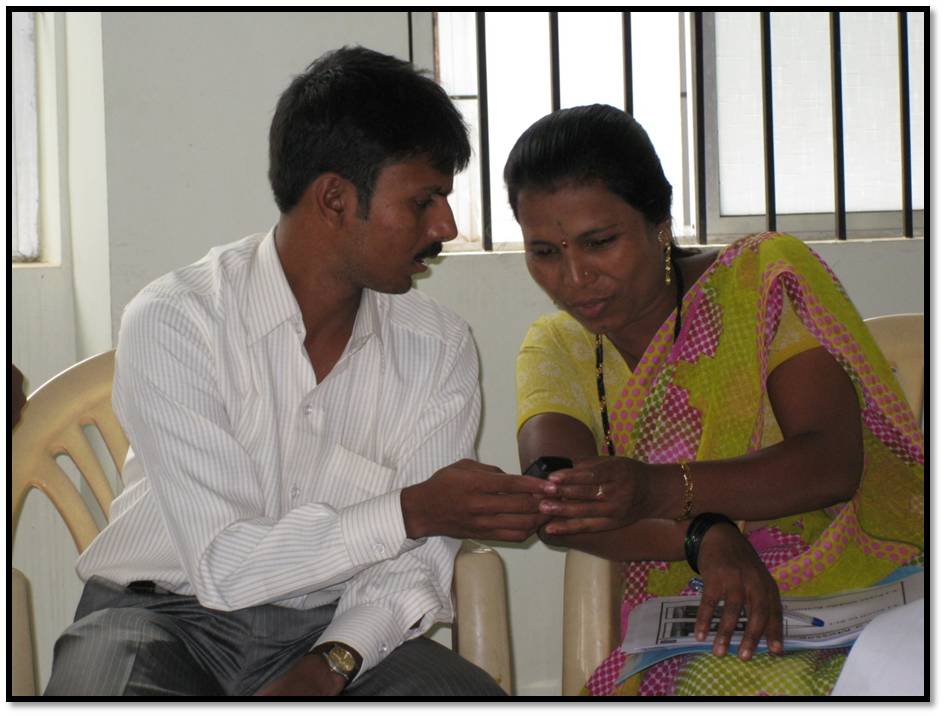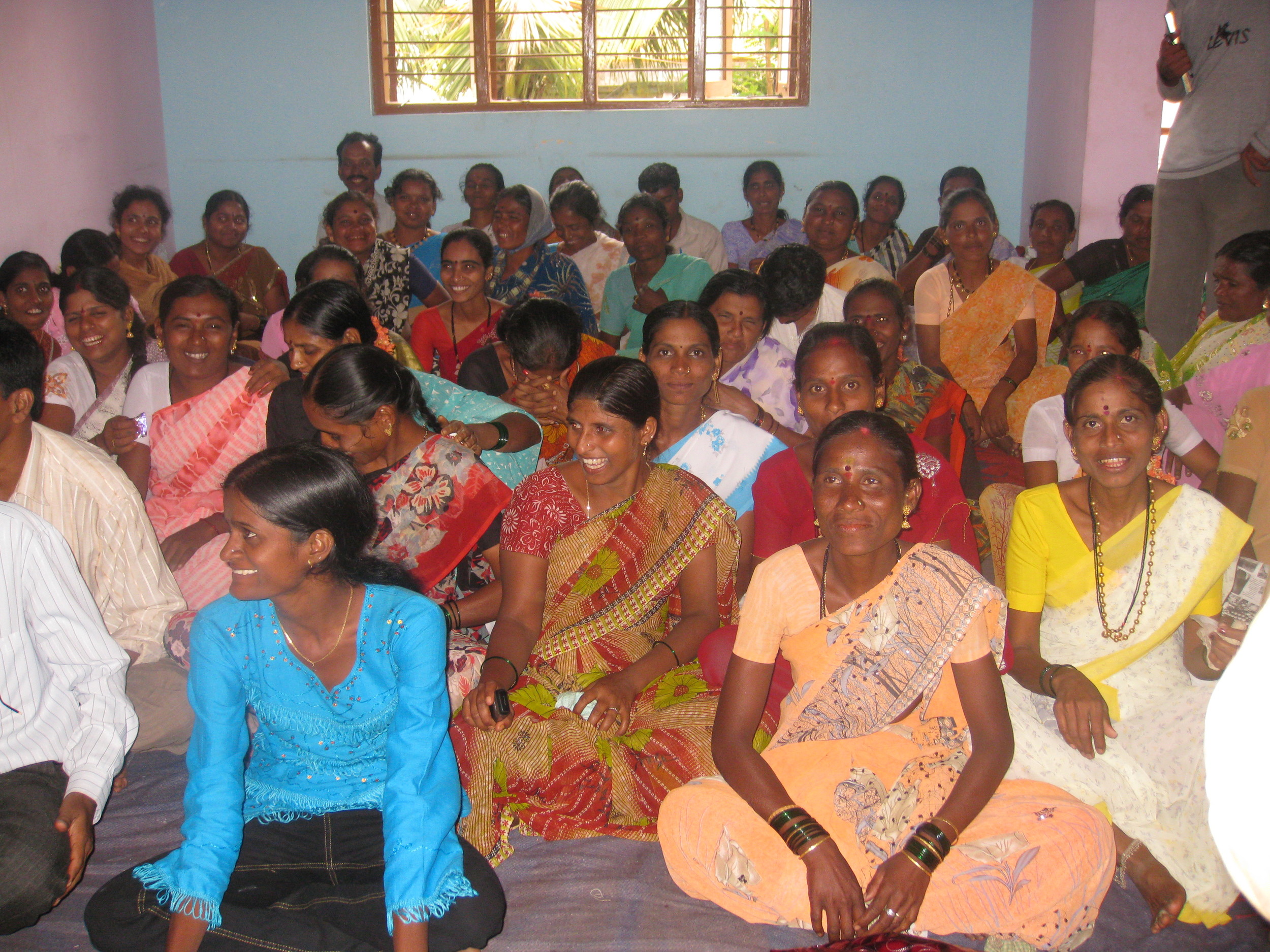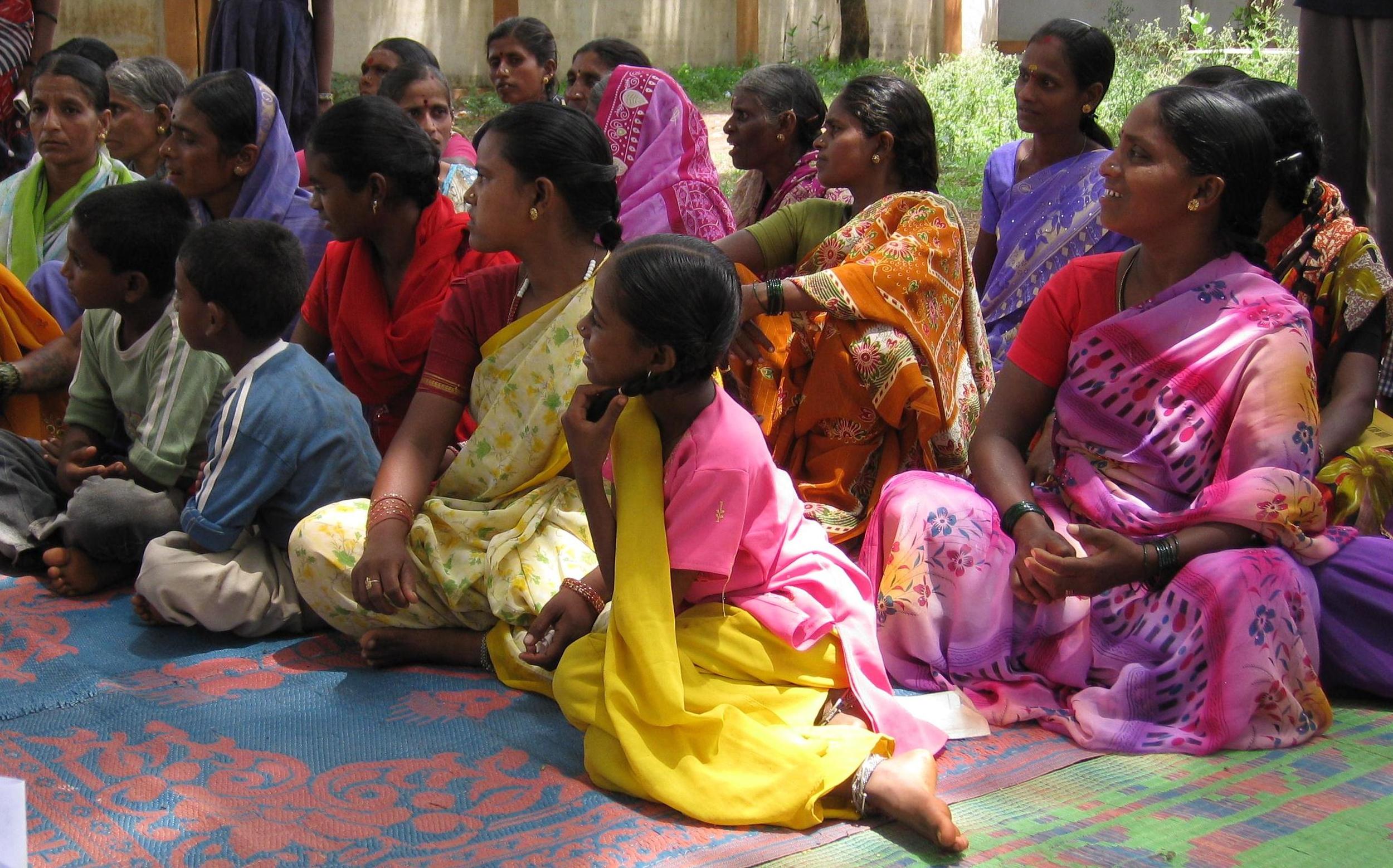One of the biggest challenges that public health systems face is reaching last-mile communities. And, for as large as that problem is in direct service provision - it can be even harder to stay in contact for researchers. Read how FrontlineSMS is currently involved in combating HIV spread in Thailand…
How Journalists Are Using FrontlineSMS to Innovate Around the World
This post was originally shared here on Media Shift's Idea Lab blog. By Flo Scialom, FrontlineSMS Community Support Coordinator
So much can be said in 160 characters. As we've started to look at tailoring FrontlineSMS software for journalists, we've realized just how much potential there is to use text messaging as a news source.
 As FrontlineSMS's community support coordinator, I interact every day with people and organizations that are using SMS in innovative ways. Increasingly, I've come across uses of FrontlineSMS as a journalistic tool, and this is particularly exciting for us as we embark on building new mobile tools to help increase media participation in hard-to-reach communities.
As FrontlineSMS's community support coordinator, I interact every day with people and organizations that are using SMS in innovative ways. Increasingly, I've come across uses of FrontlineSMS as a journalistic tool, and this is particularly exciting for us as we embark on building new mobile tools to help increase media participation in hard-to-reach communities.
FrontlineSMS is a free and open-source tool, so its most interesting uses have always come from motivated, engaged users who discover and experiment with ways to use SMS to improve what they do. When we talk about using SMS for journalism, some people immediately jump into thinking about how they could cram an entire newspaper into 160 characters. Obviously, that would be a bit tight. What our users have found, however, is that there are lots of ways to use shorter communication to enable effective journalism.
In fact, FrontlineSMS users regularly demonstrate how a wealth of information can fit into 160 characters. It's through the creative ingenuity of our users that the impact of using SMS as a news sharing tool really comes to life. The following are some examples of our users that answer the question: What difference can SMS make for the media? Read More
TEXTING INTO RADIO SHOWS
Equal Access is an innovative organization focused on using media and technology to help support development. In Chad and Niger, Equal Access runs interactive community radio shows that feature topics such as politics and religion and discuss how to overcome community tensions. With listeners keen to discuss these topics, Equal Access needs an accessible way to manage regular audience interaction. FrontlineSMS enables users to manage large numbers of incoming and outgoing SMS, providing the ability to view multiple messages on-screen, set up auto-replies, and divide contacts into groups depending on their interests. Using these functions, Equal Access sets up a way for audiences to text into its radio shows, and is able to effectively manage incoming audience text messages while on-air.
The Equal Access team talked about the value of this in a guest post on our blog, saying, "We use FrontlineSMS to create interaction ... and this shows listeners that they are being heard. In closed communities, or those struggling with violence or intolerance, the act of engaging in an interactive dialogue ... can help people feel engaged and included."
Equal Access' use of SMS demonstrates that 160 characters can be enough to enable audience engagement. And it's not just radio audiences that engage in this way (although the combination of radio and SMS is prominent, as seen through our work on FrontlineSMS:Radio).
RAISING AIDS AWARENESS
In the Democratic Republic of Congo, SMS has been used to engage opinions from audiences of a television drama broadcast called "Rien que la Vérité" (meaning "Nothing but the Truth"). One of the aims of this broadcast, which isn't just your standard entertaining drama, is to raise awareness and challenge stereotypes on HIV/AIDS. Viewers of "Rien que la Vérité" were given the option to interact with the show's producers via text message. In this case, hearing from the audience via SMS helped demonstrate whether opinions on HIV/AIDs are being affected by the show's content.
For both Equal Access and "Rien que la Vérité," using FrontlineSMS software enables more efficient audience interaction, making text messages easier to manage, respond to, and analyze.
Ongoing audience interaction is clearly important, and in today's changing media landscape the audience is now a major news provider, too. Even in areas where there's no Internet connection -- where the power of social media has yet to reach -- citizen journalists are still playing a key role in the production of media content.
BREAKING NEWS IN 160 CHARACTERS
Harry Surjadi, a Knight International Journalism fellow, is enabling citizen journalists from remote offline communities in Indonesia to break news in 160 characters. Surjadi has used FrontlineSMS to set up a system in which incoming reports from citizen journalists can be forwarded via SMS to groups of subscribers who would not necessarily have access to news from other sources; the result is a truly innovative and powerful SMS news service which is proving successful already.
The system is run with Ruai Citizen Journalism Training Center, part of a local television station in Indonesia called RuaiTV, and was set up with support from Internews. Surjadi's motivation in setting this system up was to enable remote indigenous communities to actively engage in producing media content, and due to the accessibility of SMS, he is achieving his news-sharing goals.
It's exciting to see how FrontlineSMS is allowing people to engage at a wider community level. Our users have demonstrated the wealth of potential uses of SMS in the media. Through our community, I've seen that 160 characters can speak volumes -- facilitating dialogues, providing a voice to isolated communities, and, ultimately, providing access to information that can help improve lives.
Image courtesy of Ken Banks of kiwanja.net.
Jaalaka: Connecting the HIV/AIDS Community through Technology
In the twenty-fourth in our series of guest blog posts, we'll hear about how FrontlineSMS is helping Karnataka Health Promotion Trust, and a team of students from the University of Southern California, to build a network of people living with HIV/AIDS in India.

“Jaalaka” means “network” in Sanskrit. In Hubli-Dharwad, FrontlineSMS technology is being used to connect members of the HIV/AIDS population in a widespread rural network to improve service delivery and social support.
Hubli-Dharwad, a peri-urban district in Karnataka, India, has experienced a significant HIV/AIDS endemic. Most of the infections occur amongst the rural female sex-worker population. There is a significant lack of knowledge about STI prevention and treatment amongst these sex workers, which has contributed to the growth in the rate of infections. The Karnataka Health Promotion Trust (KHPT), a government organization that funds and administers public health programs in Hubli-Dharwad, spearheads several programs to combat the spread of HIV/AIDS and other STIs. In order to target the high risk population of female sex workers, KHPT formed a partnership with the Bhoruka Charitable Trust (BCT), a local NGO aimed at promoting health and livelihoods among female sex workers. Since the Hubli-Dharwad region includes over 372 rural villages, BCT employs both professional Outreach Workers as well as volunteer Peer Educators (whom are also female sex workers) to travel to distant villages to educate female sex workers about the risk of HIV/AIDS and to promote safer sex practices.

In summer of 2009, a group of University of Southern California (USC) students, along with financial and logistical support from the Deshpande Foundation, helped launch a pilot program with FrontlineSMS software to improve BCT’s data collection and service delivery. Currently, BCT employs two uses of the Frontline Forms program. Peer Educators make contact with rural female sex workers in the field and complete a Referral Slips via Frontline Forms and the information is immediately sent to the BCT headquarters. The Outreach Workers in the field also completes Daily Reports through Frontline Forms and sends it to the headquarters. By using FrontlineSMS technology as opposed to paper forms, BCT is able to expedite the exchange of information with its staff members in various remote rural areas throughout the district.

As of today, BCT has implemented the program with 37 Peer Educators and 10 Outreach Workers. Both BCT and KHPT have been extremely pleased with the results and are eager to expand the program. Currently, a new team of USC students will be working during the summer of 2010 to troubleshoot technical issues and develop new uses of FrontlineSMS for BCT and other HIV/AIDS advocacy organizations in Hubli-Dharwad.
For more information, check out the USC team's page about the project.
Where compliance is king
This is the ninth in our series of FrontlineSMS guest posts. In this latest post Aurelio Gomes, who works out of Universidade Catolica de Mocambique, explains their use of the software in monitoring and improving anti-retroviral treatment (ART) compliance among rural communities in Mozambique
Thanks to the US President’s Emergency Program for AIDS Relief (PEPFAR), increasing numbers of HIV-infected people living in poor countries have been given access to anti-retroviral therapy (ART). Successful treatment of HIV depends upon ART recipients maintaining a compliance rate of 95% or higher to prevent the emergence of drug resistance. The commonly used first-line regimen has a low genetic barrier to resistance when dosing is below recommended levels. Not only does widespread resistance lead to a need for costly second-line regimens, but it also threatens to reverse ART survival gains. Worst still, resistant HIV may also be transmitted to others, severely limiting treatment options.

As ART therapy becomes more widely prescribed in Sub-Saharan Africa, suitable systems to ensure patient compliance have to be designed and implemented to maximize ART effectiveness. This is especially necessary in rural areas of Africa. Mozambique exemplifies this situation since 80% of the total Mozambican population are rural. Patients are difficult to locate because formal postal addresses don’t exist in these areas. As in many parts of sub-Saharan Africa, residents are not connected to the electricity grid, and lack regular phone service or access to clean water. Stigma and discrimination increase the challenge of ensuring compliance, as HIV- positive individuals are often very concerned about their privacy.
Following initial technical assistance from our partners at Inveneo, we have been successfully using FrontlineSMS for several months to facilitate communication between the HIV treatment centers and the community health care workers (CHWs) deployed in remote rural areas. These CHWs are armed with mobile phones, enabling communication to flow more quickly and accurately, leading to an improvement in health care delivery.
Our FrontlineSMS-driven communication system is helping us maintain a 95% and higher compliance of ARV therapy, crucial for the patient, the success of our programme and efforts to reduce the chances of development of drug-resistant strains of the virus.
Aurelio Gomes Project Coordinator Universidade Catolica de Mocambique www.ucm.ac.mz
Sitcoms+SMS: Tackling HIV/AIDS in the DRC
In this, the first of a series of guest posts on how FrontlineSMS is being used around the world, Becky McLaughlin - Marketing Director at Rien que la Vérité - talks about their current use of the platform, and the impact it has had on their work "Based in the Democratic Republic of Congo, Rien que la Vérité was born in 2006 when some of the finest musicians in the Congo united to produce a CD of songs speaking against the spread of HIV/AIDS. Since 2006, the Rien que la Vérité platform has produced 14 music videos, a documentary, and an all-day stadium concert. In its present incarnation, Rien que la Vérité is touching the lives of the people of the Congo through their television screens as they follow the lives of a Kinois family on a locally-produced TV drama.

Rien que la Vérité - the TV series - launched nationally on November 30th, 2008 and first implemented FrontlineSMS in the airing of its second episode on December 14th. Each episode broadcast is accompanied by short talk-show segments during which a host introduces music clips, talks to well-known musicians and actors, and interviews representatives from local NGOs and organizations whose message dovetails with a theme introduced in the show.
During the December 14th show, the audience was invited to participate by sending an SMS with the name of their favorite character. The responses were collected using FrontlineSMS. This simple first step allowed Rien que la Vérité to test the software and to begin an exploration of our audience's perceptions and preferences. As the show continues we plan to introduce more simple polls that will help tailor the show to the audience's tastes, and give viewers a sense of ownership of the program.

This, however, is the most basic use we foresee. We are now launching a drive to support fan clubs, so that people who watch the show can find each other, meet, and talk about the show and the topics it introduces - a process that will begin to normalize conversation about HIV/AIDS. We'll use FrontlineSMS to collect contact information from interested fans, then broadcast messages with times and locations for local club gatherings. We also intend to use FrontlineSMS in our research for measuring the impact the show has on our target audience. We'll send out questions via SMS to fans before and after each show, measuring any changes in attitude, knowledge, or self-reported practices due to exposure to the show's messaging.
FrontlineSMS will be a critical tool in our goal to entertain and educate. Like its television format, Rien que la Vérité's future development must remain grassroots, and FrontlineSMS is an excellent vehicle for this."
Becky McLaughlin Marketing Director Rien que la Vérité www.abcd-laverite.com


